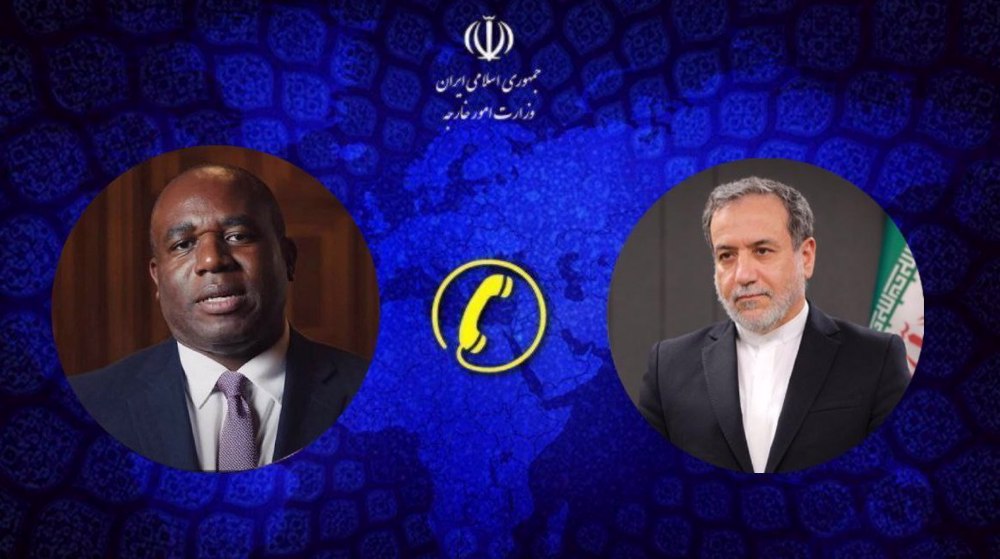Iran’s Stance on Territorial Integrity: A Diplomatic Dialogue with the UK
In a recent phone conversation between Iran’s Foreign Minister Abbas Araghchi and British Foreign Secretary David Lammy, the topic of regional security and the ongoing tensions in the Middle East took center stage. Araghchi’s remarks underscored Iran’s unwavering commitment to defending its territorial integrity and national sovereignty against any acts of aggression, particularly in light of recent hostilities attributed to the Israeli regime.
Iran’s Right to Defense
During the call, Araghchi articulated Iran’s position regarding the Israeli regime’s recent military actions targeting defensive installations across various Iranian provinces, including Tehran, Khuzestan, and Ilam. He emphasized that Iran would not hesitate to exercise its inherent and legal right to defend itself. This assertion reflects a broader narrative within Iranian foreign policy that prioritizes national sovereignty and territorial integrity, particularly in a region fraught with geopolitical tensions.
Araghchi’s comments came in response to what he described as a series of aggressive actions by Israel, which he claimed were part of a larger pattern of hostility towards Iran and its allies in the region. The Iranian Air Defense Force’s successful interception of these attacks was highlighted as a testament to the country’s preparedness and resolve to protect its national interests.
Retaliation and International Law
The Iranian Foreign Minister did not shy away from discussing the potential consequences of these aggressions. He reiterated that any response from Iran would be measured and in accordance with international law and the principles outlined in the United Nations Charter. This statement is significant as it positions Iran as a nation willing to engage in self-defense while simultaneously advocating for adherence to international norms.
Araghchi’s emphasis on retaliation was not merely a threat but a call for accountability. He urged the international community, particularly the United Nations, to condemn the Israeli regime’s actions, which he characterized as a continuation of its atrocities in the Gaza Strip and Lebanon. By framing the situation in this manner, Araghchi seeks to garner international support against what he describes as a campaign of aggression and genocide.
The Humanitarian Crisis in Gaza and Lebanon
The humanitarian implications of the ongoing conflict were also a focal point of Araghchi’s discourse. He pointed out that the Israeli regime’s military actions have resulted in significant loss of life, with tens of thousands of casualties reported since the escalation of violence last October. This statistic serves to highlight the urgent need for a humanitarian response and the cessation of hostilities.
In light of these developments, Araghchi called for drastic measures to hold the Israeli leadership accountable for their actions. He urged the international community to reconsider its military and political support for Israel, suggesting that such backing only exacerbates the cycle of violence and instability in the region.
The British Perspective
In response to Araghchi’s assertions, David Lammy acknowledged the inflammatory nature of the current circumstances in the West Asia region. He emphasized the importance of self-restraint among all parties involved, advocating for diplomatic efforts aimed at de-escalating tensions. Lammy’s call for restraint reflects a recognition of the delicate balance required to prevent further escalation of conflict, which could have dire consequences not only for the region but for global stability as well.
Conclusion
The dialogue between Iran and the UK highlights the complexities of Middle Eastern geopolitics, where historical grievances, national sovereignty, and international law intersect. As tensions continue to rise, the need for constructive dialogue and diplomatic engagement becomes increasingly critical. Both Araghchi and Lammy’s statements underscore the importance of addressing the root causes of conflict while advocating for peace and stability in a region that has long been marred by violence. The international community’s role in mediating these tensions will be crucial in shaping the future of West Asia and ensuring that the rights and lives of civilians are prioritized amidst the ongoing strife.
